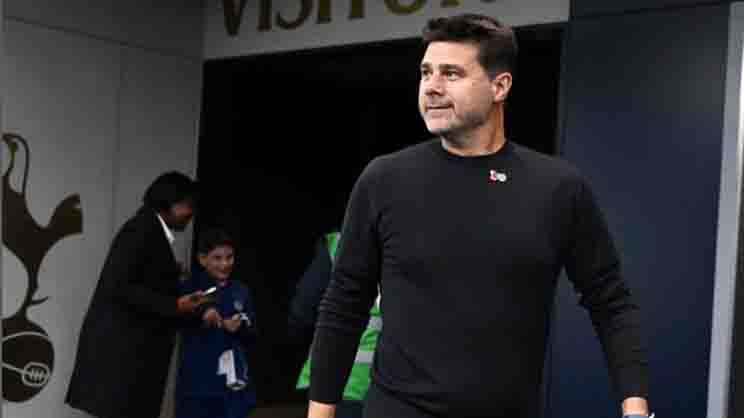Mauricio Pochettino, a revered figure in the world of football, embodies a unique blend of tactical genius and passionate dedication. Known for his illustrious career both as a tenacious defender and a highly respected manager, Pochettino’s influence extends beyond the football pitch, touching on aspects of spirituality and cultural identity. Despite being raised in the Catholic tradition, Pochettino’s spiritual beliefs lean towards a more universal and reflective understanding of energy and existence, rather than strict adherence to organized religion. This, coupled with his rich Argentine and Italian heritage, paints a picture of a man deeply rooted in diverse cultural and philosophical backgrounds.
Introduction
Mauricio Pochettino, celebrated for his strategic acumen in football management, is equally fascinating for his spiritual beliefs and cultural background. While achieving fame through stints with Tottenham Hotspur and Paris Saint-Germain, Pochettino also intrigues fans with his philosophical outlook on life, embracing the concept of “universal energy” over conventional religious practices. This approach, combined with his Argentine-Italian heritage, offers insights into the multifaceted nature of his identity, both on and off the field.
Summary Table
| Aspect | Details |
|---|---|
| Religion | Universal energy, raised Catholic |
| Cultural Heritage | Argentine-Italian |
| Career | Former defender, renowned football manager |
| Philosophy | Emphasizes personal reflection, beyond dogma |
Mauricio Pochettino’s Spiritual Beliefs
Mauricio Pochettino’s spiritual journey is as compelling as his tactical strategies in football. Raised within the Catholic tradition in Argentina, he has since gravitated towards a philosophy that emphasizes the interconnectedness of all living and non-living things through “universal energy.” This belief system suggests a more metaphysical understanding of the world, transcending traditional religious boundaries. Pochettino’s spirituality is characterized by a deep reflection on existence and a profound respect for the energies that pervade the universe, indicating a broad, inclusive approach to understanding life’s mysteries.
Cultural Heritage and Identity
Born in Murphy, Santa Fe, Pochettino’s identity is a tapestry of Argentine warmth and Italian complexity. His Argentine roots are evident in his resilience and passionate approach to football, reflecting the country’s rich blend of indigenous and European influences. The Italian aspect of his heritage, tracing back to Piedmont, adds layers of historical depth and cultural richness to his persona. This blend of cultures has not only shaped Pochettino’s values and work ethic but also his perspective on life and football, making him a distinctive figure in the sport.

The Impact of Background on Career
Pochettino’s journey from a defender known for his tenacity to a manager celebrated for his tactical intelligence and ability to foster team cohesion is deeply influenced by his background. His upbringing, marked by the hardworking ethos of his parents in Argentina, and the diverse cultural influences of his heritage, have instilled in him a unique approach to leadership and management. This approach is evident in his teams, which are characterized by their dynamic play, unity, and the development of young talent. Pochettino’s career is a testament to how personal beliefs and cultural heritage can shape professional philosophy and success.
ALSO READ: Kairi Sane No Makeup: Before And After
Influence of Spirituality on Management Style
Mauricio Pochettino’s management style is a reflection of his spiritual beliefs. He often emphasizes the importance of harmony, positive energy, and collective consciousness within his teams. Pochettino believes that the success of a team is not just a result of tactical knowledge or physical preparedness but also the psychological and emotional state of the players. By nurturing a supportive and cohesive team environment, he aims to unlock the full potential of each player, showcasing a management approach that prioritizes mental and spiritual well-being alongside physical training. This philosophy has been pivotal in building dynamic, resilient teams that share a deep sense of unity and purpose.
Personal Reflection and Professional Relationships
Pochettino’s reflective approach extends to his interactions with players and staff, fostering relationships based on mutual respect, understanding, and shared goals. He is known for his ability to connect with players on a personal level, taking an interest in their lives beyond football. This personal investment often translates into stronger loyalty and commitment from his players, who feel valued not just as athletes but as individuals. Pochettino’s emphasis on personal growth and development aligns with his belief in the interconnectedness of all aspects of life, including professional and personal realms.

The Role of Cultural Heritage
The blend of Argentine resilience and Italian strategic depth in Pochettino’s heritage is evident in his tactical approach. Argentine football is known for its passionate, relentless style, while Italian football emphasizes tactical discipline and strategic planning. Pochettino merges these influences to create teams that are both emotionally driven and tactically astute, capable of adapting to the challenges of modern football. His cultural heritage also informs his communication style, leadership qualities, and approach to team building, integrating the warmth of Argentine camaraderie with the meticulousness of Italian tactics.
- Argentine Passion: Instills determination and fighting spirit.
- Italian Strategic Depth: Encourages tactical discipline and adaptability.
Legacy and Impact on Football
Mauricio Pochettino’s legacy in football extends beyond his achievements on the pitch. He is a figure who represents the integration of deep philosophical beliefs with professional excellence. His approach to management and leadership has influenced the way football clubs view the role of a manager, highlighting the importance of psychological and emotional well-being in achieving sporting success. Pochettino’s impact is also seen in the development of young talent, where his nurturing style has allowed emerging players to thrive and reach their full potential. As he continues his journey in football, Pochettino remains a testament to the profound influence of cultural and spiritual depth in shaping a successful and meaningful career.
Mauricio Pochettino’s unique blend of spiritual philosophy, cultural heritage, and tactical intelligence makes him a distinctive and respected figure in the world of football. His approach to management, emphasizing universal energy, personal growth, and collective harmony, offers a fresh perspective on leadership and team dynamics. As Pochettino continues to shape the destinies of clubs and players, his legacy as a tactician who values the human element of the sport is secure, inspiring future generations to consider the broader implications of their beliefs and practices in achieving professional excellence.
Conclusion
Mauricio Pochettino stands out not only as a master tactician in the world of football but also as a figure of philosophical depth and cultural richness. His spiritual beliefs, emphasizing universal energy and interconnectedness, along with his Argentine-Italian heritage, paint a picture of a man who navigates life and football with profound reflection and respect for diverse perspectives. As Pochettino continues to leave his mark on the sport, his unique blend of spirituality and cultural identity remains a compelling aspect of his legacy.
ALSO READ: Who Is Bonnie Stoll? Wikipedia And Bio






